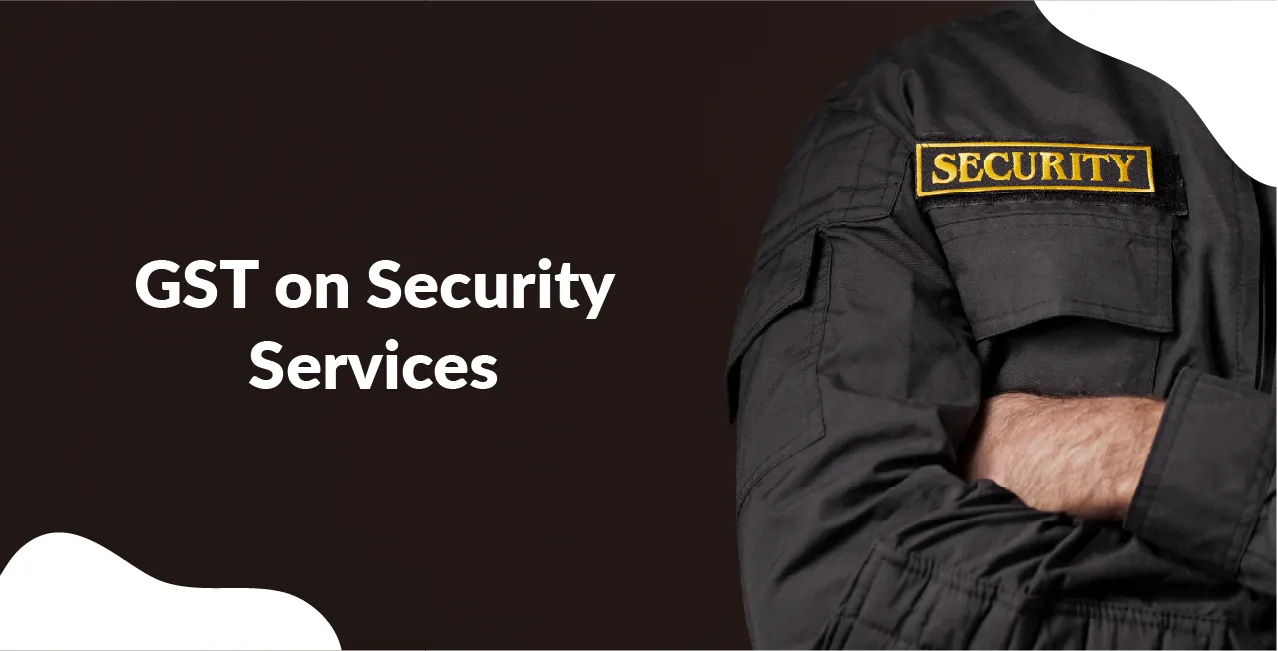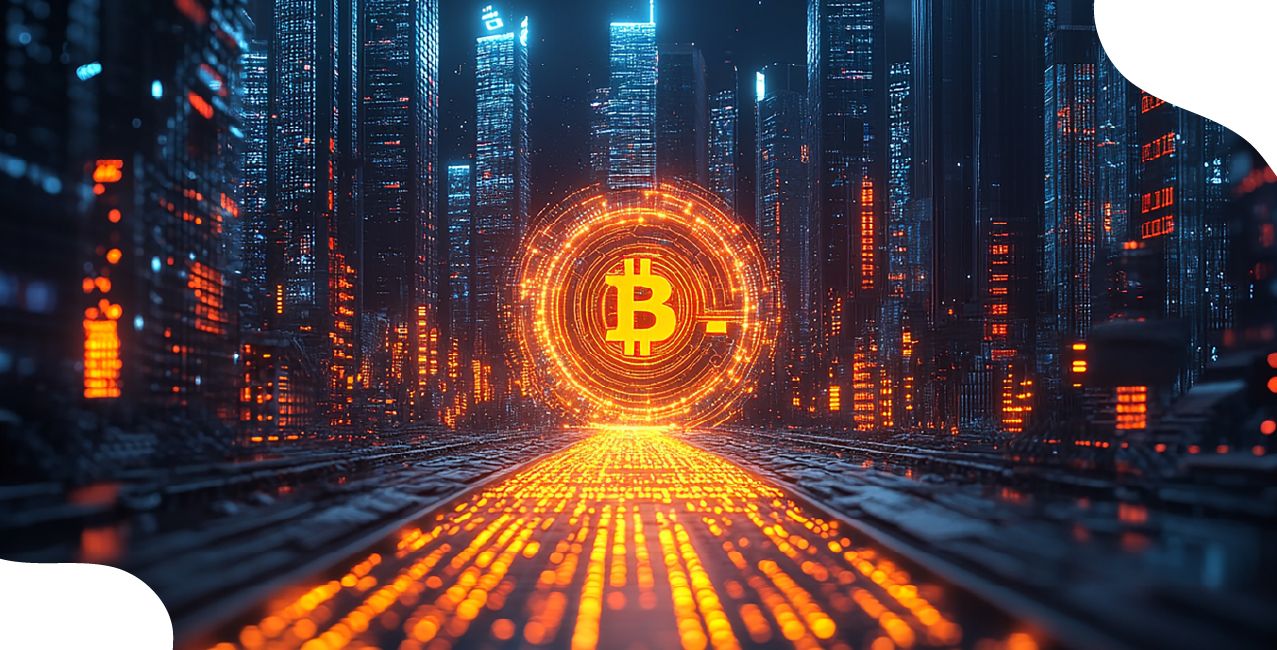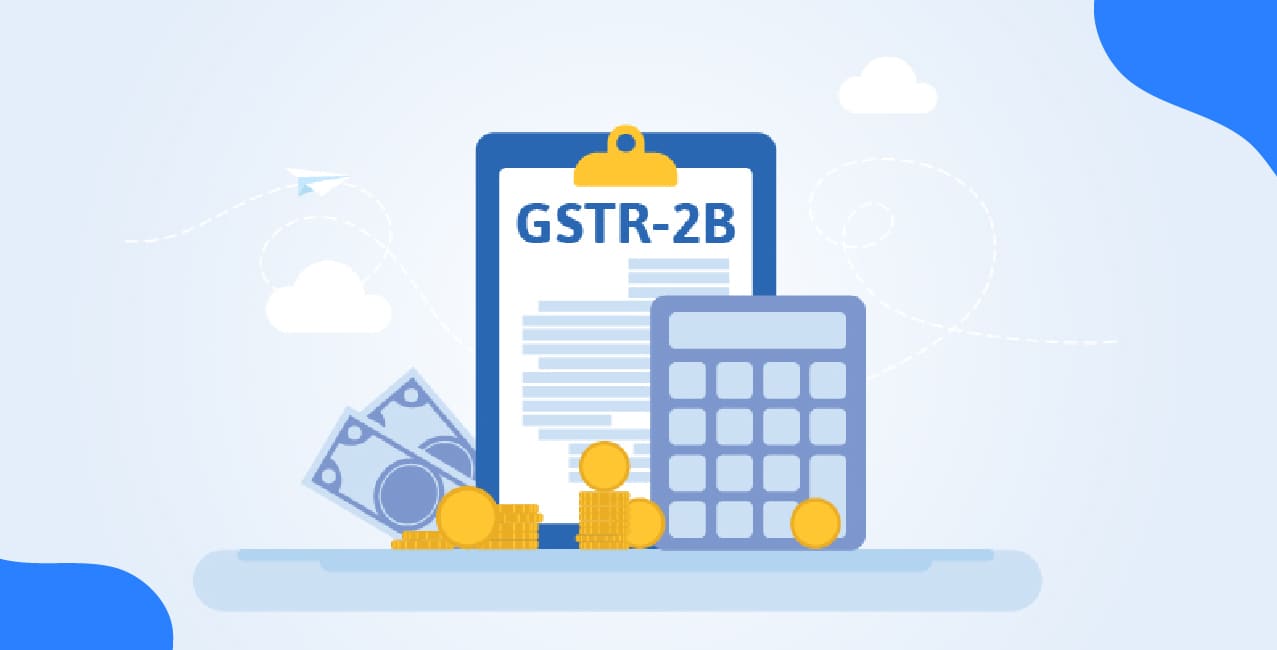GST on Security Services – Tax Rate, Reverse Charge & Rules

Check Your Loan Eligibility Now
By continuing, you agree to LoansJagat's Credit Report Terms of Use, Terms and Conditions, Privacy Policy, and authorize contact via Call, SMS, Email, or WhatsApp
Delhi small company owner Raman Mehta was taken aback when he saw that his monthly security services bill included an 18% GST charge. Prior to then, he believed that security was a necessary company expense that was never subject to taxes. After further investigation, he discovered that all security services, including patrols, monitoring, and guards, are subject to 18% GST under SAC number 998529.
What stunned him more was the Reverse Charge Mechanism (RCM): since his service provider wasn’t a body corporate, he, as the recipient, was liable to pay the tax directly to the government. What started as confusion soon became a crash course in GST compliance.
GST on Security Services – A Short Introduction
Under India’s Goods and Services Tax (GST) system, security services fall under Service Accounting Code (SAC) 998529 and attract 18% GST. These services include security guards, patrolling, and surveillance systems.
If the service provider is not a body corporate (like a partnership or individual), the Reverse Charge Mechanism (RCM) applies. In such cases, the recipient, usually a registered business, must pay the GST directly to the government. The service provider does not collect the tax.
This puts the responsibility on businesses to stay careful and accurate with their GST payments and accounting.
GST on Security Services – Create a Table Mentioning Different Categories of Security Services with Types, SAC Code, and Applicable GST Rate
Impact of GST on the Security Services Industry with Examples
The implementation of the Goods and Services Tax (GST) in India has had a significant impact on the security services industry, introducing both challenges and opportunities for businesses in this sector.
1. Increased Operational Costs
Prior to GST, security services were subject to service tax, which was generally lower than the current 18% GST rate. This increase in tax rate has led to higher operational costs for businesses that rely heavily on security services, such as retail chains and manufacturing units. For instance, a company paying ₹1 lakh per month for security services now faces an additional ₹18,000 in GST, impacting their overall budget allocations.
2. Reverse Charge Mechanism (RCM) Compliance
Under the Reverse Charge Mechanism, if the service provider is not a body corporate, the recipient of the service is liable to pay the GST directly to the government. This shift in liability has necessitated businesses to enhance their accounting systems to ensure timely and accurate tax payments. Companies must now be vigilant in verifying the status of their service providers to determine their GST obligations.
3. Impact on Small and Medium Enterprises (SMEs)
SMEs, which often engage with non-corporate security service providers, are particularly affected by the RCM provisions. The requirement to pay GST under RCM can strain their cash flows, as they must remit the tax without the benefit of input tax credit, unlike larger corporations. This has led to calls for reconsideration of RCM applicability to ease the financial burden on smaller businesses.
4. Potential for Increased Formalisation
On a positive note, the GST framework encourages the formalisation of the security services industry. Service providers are now required to register under GST, leading to better documentation and transparency in transactions. This shift can enhance the credibility of service providers and foster trust among clients, potentially leading to more business opportunities in the formal sector.
Summary:
- Tax burden increased from 15% to 18%.
- Under RCM, the client is responsible for GST compliance.
- With proper documentation, the client can claim ITC, reducing the net impact.
This example assumes full eligibility for ITC under GST, which may vary depending on the nature of the business and usage.
Input Tax Credit (ITC) on Security Services
Under the Goods and Services Tax (GST) regime in India, businesses can claim Input Tax Credit (ITC) on the GST paid for security services, provided certain conditions are met.
Eligibility Criteria for ITC on Security Services:
To claim ITC on security services, the following conditions must be satisfied:
- Business Use: The security services must be used for business purposes or for making taxable supplies.
- Valid Documentation: The recipient must possess a valid tax invoice, debit note, or any other prescribed document evidencing payment towards the purchase.
- Receipt of Services: The recipient must have received the security services.
- Tax Payment by Supplier: The supplier must have paid the tax to the government.
- GST Return Filing: The recipient must have filed the GST returns, particularly GSTR-3B, to avail of ITC.
- Payment to Supplier: Payment to the supplier must be made within 180 days from the date of invoice. If not, the ITC claimed must be reversed.
Ineligible Situations for ITC:
ITC cannot be claimed on security services under the following circumstances:
- Personal Use: If the services are used for personal purposes.
- Exempt Supplies: If the services are used to make exempt supplies.
- Blocked Credits: As per Section 17(5) of the CGST Act, ITC is not available on certain items, including:
- Motor vehicles and other conveyances (except when used for further supply of goods or services, or transportation of passengers, or for imparting training on driving, flying, navigating, etc.).
- Food and beverages, outdoor catering, beauty treatment, health services, cosmetic and plastic surgery, life insurance, health insurance, and membership of a club, health, and fitness centre.
Documentation Required for ITC Claim
To claim ITC on security services, the following documents are necessary:
- Tax Invoice: Issued by the security service provider.
- Debit Note: If applicable, issued by the supplier.
- Payment Proof: Evidence of payment made to the supplier.
- GST Returns: Copies of filed GST returns, particularly GSTR-3B.
Conclusion
Businesses that use security services must follow GST rules carefully. If the provider is not a company, the business must pay the GST under the reverse charge. Staying up to date with these rules helps businesses avoid mistakes and stay compliant.
FAQs Related to GST on Security Services
Q. What is the GST rate on security services?
Security services attract a standard GST rate of 18%.
Q. Is GST applicable under the Reverse Charge Mechanism (RCM)?
Yes, if the service provider is not a body corporate and the recipient is a registered business.
Q. Can Input Tax Credit (ITC) be claimed on security services?
Yes, ITC is available if the services are used for taxable business purposes.
Q. Are residential housing societies required to pay GST on security services?
No, if their monthly maintenance collection per member is less than ₹7,500 and their annual turnover is below ₹20 lakh.
Other Important GST Pages | ||||
About the author

LoansJagat Team
Contributor‘Simplify Finance for Everyone.’ This is the common goal of our team, as we try to explain any topic with relatable examples. From personal to business finance, managing EMIs to becoming debt-free, we do extensive research on each and every parameter, so you don’t have to. Scroll up and have a look at what 15+ years of experience in the BFSI sector looks like.
Subscribe Now
Related Blog Post
Recent Blogs
All Topics
Contents
Quick Apply Loan
Consolidate your debts into one easy EMI.
Takes less than 2 minutes. No paperwork.
10 Lakhs+
Trusted Customers
2000 Cr+
Loans Disbursed
4.7/5
Google Reviews
20+
Banks & NBFCs Offers
Other services mentioned in this article








